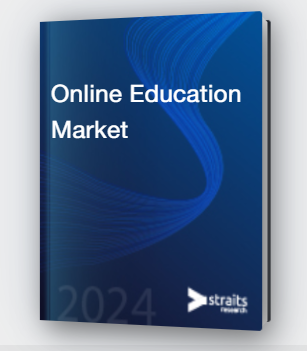
What trends are shaping the future of EdTech? Why are more people turning to tutoring, and how will the teacher’s role evolve in the age of technology? Vika Lisitsyna, Art Director at Yandex Practicum, Russian EdTech platform, shares her insights on these pressing questions and more.
How much will the online education market grow in the next 1-3 years, and what will drive this growth?
According to estimates by Straits Research, the online education market is expected to reach USD 324.95 billion by 2032. I think, there are 3 main factors:
- First, technological advancements are playing a crucial role. The increasing adoption of artificial intelligence (AI) in e-learning is significantly driving global market expansion. Cloud-based tools and AI-enabled learning solutions are becoming more prevalent, making education more accessible and efficient. Additionally, the wider availability of the internet has allowed learners to access educational platforms anytime and anywhere, further contributing to the growth of this sector. The rise in advanced smartphone usage is another important element, as it makes engaging with online education platforms easier and more widespread.
- Growth is the inability of traditional educational institutions to fully meet the demands of the modern economy. For example, in 2023, Skillbox (online school in Russia) alone achieved a turnover of over 137 million USD, a figure comparable to the education budgets of two large universities from the Forbes top 15 list. This indicates that learners are increasingly turning to online alternatives to acquire the skills needed in today’s competitive job market.
- Finally, the shift towards online learning during the COVID-19 pandemic has had a lasting impact. The widespread adoption of remote education during this period demonstrated the value and effectiveness of digital learning platforms. As a result, many people now view online education as a practical and convenient alternative, which will likely fuel further market growth in the coming years.
Which segments of the online education market will grow the fastest in the next 1-3 years?
I believe that several key areas within the online education market are set to grow rapidly in the next few years, particularly online degree programs, corporate training, and mobile learning.
When it comes to online degree programs, I think this segment will see substantial growth. According to estimates, the market could reach $74 billion by 2025, which is nearly double the $36 billion figure from 2019. In my view, this surge is being driven by the growing acceptance of online degrees among employers. More companies are recognising the value of flexible, tech-driven education. I also see that more universities and institutions are expanding their offerings online, which provides learners with the convenience they need to fit education into their busy lives.
In the corporate sector, I would say corporate training and upskilling will experience significant growth as well. From what I’ve observed, more businesses are investing heavily in online training for their employees. As industries evolve and the need for new skills intensifies, companies are recognising that continuous learning is critical for staying competitive. Online platforms provide a scalable, cost-effective way to achieve this. I’m convinced that as organisations continue to embrace digital learning solutions, this segment will see remarkable expansion.
Lastly, based on the trends I’ve seen, mobile learning is likely to dominate the market. The use of smartphones and tablets for educational purposes has become so common that it’s hard to imagine this segment not growing. I think the ability to learn on the go, combined with more mobile-friendly content being developed, is key here. People want education to fit seamlessly into their daily routines, and mobile learning offers exactly that. I expect this area to grow rapidly as more users turn to their mobile devices for learning opportunities.
What are your thoughts on peer-to-peer learning, where two people teach each other but aren’t professionals in the subject?
I think peer-to-peer learning can be quite effective if approached thoughtfully. One of its main strengths is the collaborative nature—participants share unique perspectives, which often enriches the learning process. Teaching someone else also reinforces one’s own understanding. It’s an accessible and flexible model, as anyone can participate, and learners can personalise their sessions to fit their interests. Additionally, it helps develop valuable soft skills like communication and critical thinking.
However, there are challenges. The lack of expertise can lead to knowledge gaps or even misinformation, and without expert guidance, learners may struggle with more complex topics. There’s also the issue of uneven participation—if one person is less committed, it can hinder the overall experience.
To make it work well, it’s important to set clear goals, maintain structure, and supplement discussions with external resources. Occasionally involving an expert can also help deepen the learning experience. Overall, peer-to-peer learning offers great potential, but it requires careful management to avoid its limitations.
It seems like nowadays, any expert in their field can become a teacher. We see people with as little as 3-5 years of experience teaching subjects like English. Do you think there will be more or fewer of such people in the future? If more, why?
In my experience, having ten or more years of experience isn’t always a guaranteed advantage for a teacher. The world is changing so quickly that staying relevant requires constant updates to one’s knowledge and skills. If a teacher continues to adapt to these changes, that’s great. However, if they don’t, the quality of education they provide can decline significantly. This largely depends on the teacher’s own motivation to stay current.
When it comes to people with 3-5 years of experience, I believe that’s often enough to teach beginners, especially in fields like IT. In just a few years, a programmer or analyst can easily reach the level of a senior or expert, assuming they continue to grow professionally.
As for whether we’ll see more or fewer such educators, I think it largely depends on market demand and the number of courses available in specific fields.
Question: Many courses are now built around AI and analytics. How is the role of the teacher or lecturer changing in this environment?
In my opinion the role of teachers is undergoing a significant transformation, shifting from being the primary source of information to becoming learning facilitators. With AI tools increasingly capable of delivering content and creating personalised learning experiences, teachers are no longer just the ones imparting knowledge. Instead, their role is evolving towards guiding students in critical thinking, helping them develop problem-solving skills, and encouraging independent research. This shift allows educators to focus on helping students engage more deeply with the material and develop a true understanding, rather than simply delivering lectures or presenting information.
However, I also think that the education sector is facing a major technological debt compared to other industries. For example, in marketing, we’ve been receiving personalised content for a long time, and in finance, we’re used to processes like credit scoring and other tailored services. In everyday life, technology allows us to access services quickly and conveniently—right from our smartphones. But in education, the approach often remains outdated. We are still largely taught as a group, by a one-size-fits-all method, using traditional tools like chalk and a blackboard. There’s a noticeable lag between the technologies we rely on in everyday life and those used in the classroom, and I think it’s time for education to catch up with these advancements.





